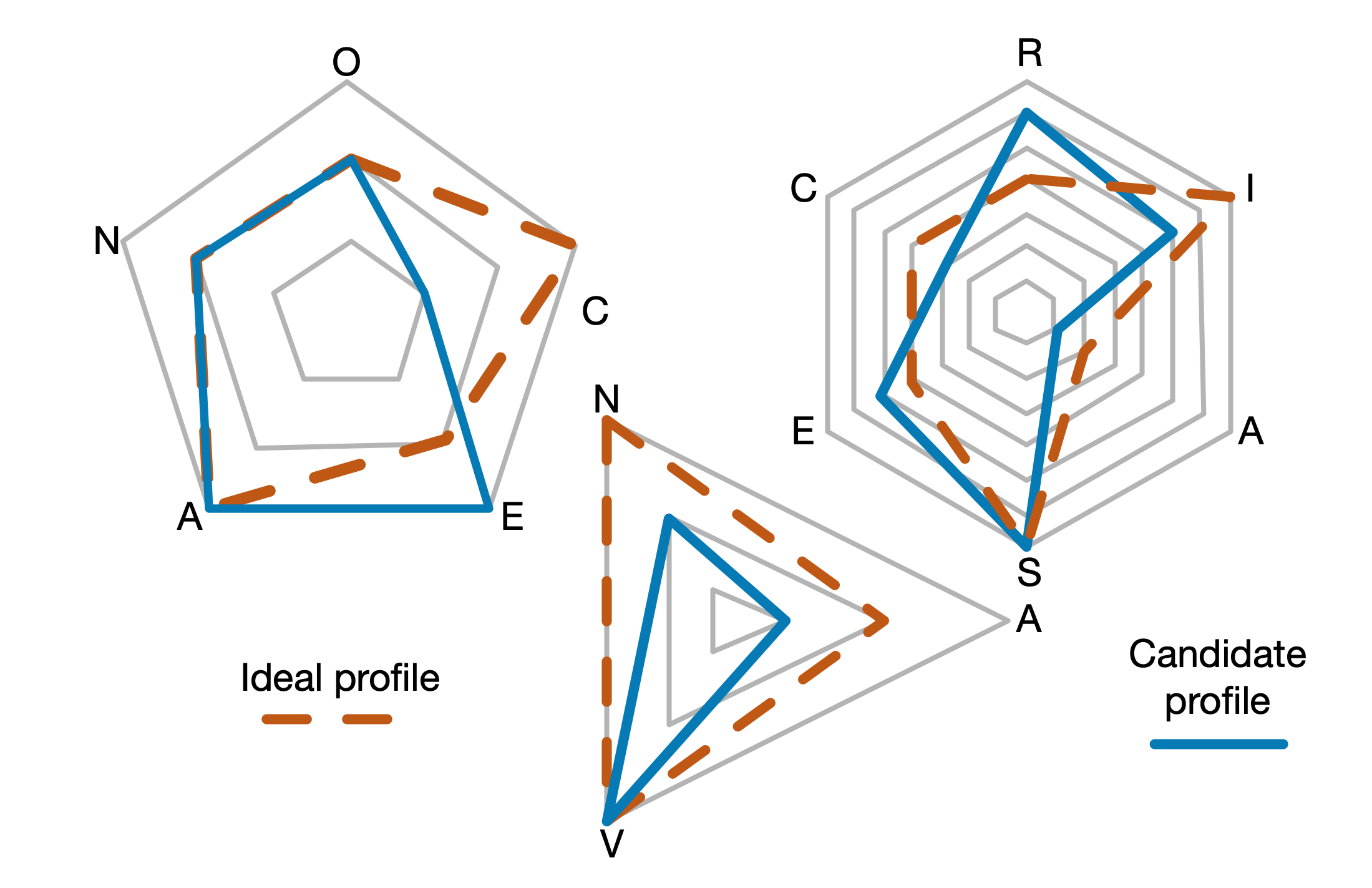HR & OD tools for your business - use them to define foundation characteristics in candidates
Getting specific about hiring
Written by John Berry on 21st April 2023.0
2 min read
 Lots of lay people make intelligent statements.
Lots of lay people make intelligent statements.
They say things like, “Don’t give me someone who can code. Give me someone who can think. I can teach them to code”. They’re taking about hiring a software engineer.
Others say, “Hire for attitude, not for skills, because skills can be learned”. This one is attributed to Richard Branson, though others have used it too.
And then recently at a West Sussex digital skills conference, “Hire for skills, not qualifications”.
All these intelligent people are right… and yet all wrong. Actually, not wrong, just inaccurate.
They all recognise that it’s not an ideal world.
In an ideal world, you’d list the profile of the person you seek. That would include big statements like, ’10 years’ experience in building motorways (or whatever)’. You’d add qualifications like, ‘BSc in civil engineering, and be a Chartered Civil Engineer’, because hard qualifications and statements of experience are searchable. Being a ‘conscientious worker’ isn’t.
The problem is that in a skills shortage, searching for such ideals will lead only to failure. So that’s why lay people try to boil down the complexity of determining search and selection criteria to a trite statement.
Most managers will list the ideal, and then compromise when they see the disappointing candidates. That’s wrong.
 What those statements have in common is the need to determine a basic set of candidate personal characteristics that would be acceptable, and upon which the hiring manager would build. Skills can indeed be learned. Competence can be built. Jobs can be learned. But only if there’s a viable foundation.
What those statements have in common is the need to determine a basic set of candidate personal characteristics that would be acceptable, and upon which the hiring manager would build. Skills can indeed be learned. Competence can be built. Jobs can be learned. But only if there’s a viable foundation.
So, it’s not about big statements about experience and qualifications that inevitably lead to compromise later. And it’s not about trite statements that inevitable lead to gut-feel decisions.
It’s about rational analysis of exactly what’s needed in that foundation.
People are defined by their intelligence, personality, preferences, competencies, behaviours, beliefs, attitudes, values, experience, growth needs strength, self-efficacy, implicit motives, perceived abilities, and self-esteem.
So, the task starts by defining those quantitatively. Then asking, “Where do I look, and how would I spot someone with the right foundation?”
For this you need tools that will a) quantify the ideal candidate and b) give quantitative information on each candidate against this ideal. Then hiring managers have tangible information for use in rational decisions.
And that’s where our tools come in.